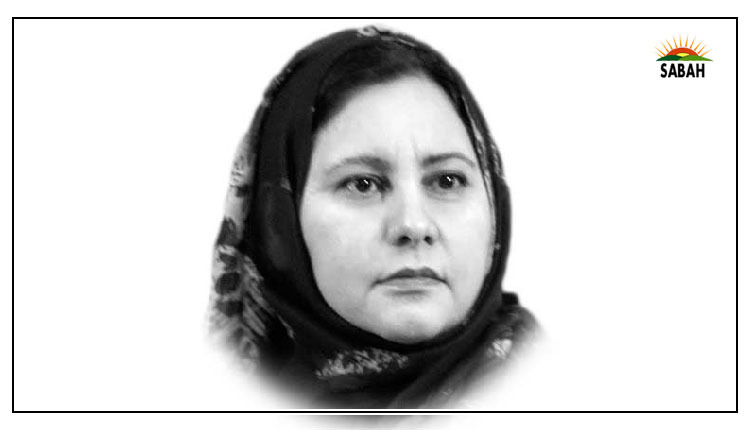Sindh’s battle against usury… Surendar Valasai
Usury has infested the societies since ages. The practice of lending money to people at unreasonably high interest rates is still going in the era of modern banking system. It has harmed the economic interests of the lower echelon among the humanity.
In Sindh, though the practice is visible everywhere but the worst affected is Tharparkar district where usurers offer loans on up to 10-20% interest rates after mortgaging jewelry of precious metals. Nowadays, even the cheque books and ATM cards of the government employees are kept as security in return for loans on heavy interests.
Following reports of increase in usury in recent years and their repercussions on the poor people, the Sindh Human Rights Department formed a Fact-Finding Committee chaired by leading artist-cum-human rights activist Ayub Khosa. The Committee came up with a report painting a bleak picture of the situation in Thar and Umerkot districts.
Instantly after the report was made public, the Sindh Assembly passed a landmark law, Sindh Prohibition of Interest on Private Loan Bill, 2023, which holds accountable any lender that harasses a borrower or demands interest in private lending.
The bill prohibiting the business and practices of private money-lending and advancing loans and any transaction based on interest was passed in February 2023, and the Governor Sindh signed it into law in July 2023, allowing strict penalties against private lenders providing interest-based loans and harassing the debtors.
The law would help curb widespread practices of usury or privates lending across the province, especially in rural areas such as Tharparkar. The provincial government had come to know that poor farmers of Tharparkar would take loans on high interest rates and commit suicide in extreme mental conditions, aroused from harassment of the lenders.
Poor economic conditions of the farmers of Thar force them to take loans, especially where there is a drought. Private lenders exploit the vulnerable and charge high interest on the loan, making it extremely difficult for the borrowers to return the loan.
Reports of unusual suicides by farmers in the province, especially in Thar, alarmed the authorities back in 2018. The government decided to conduct a research and enact a law against the practice of usury and exploitation of poor famers in the province.
The social and economic pressure built for the defaulting farmers became so compelling that in certain instances they had been left with no option other than taking their own lives, Adviser to CM Sindh on Information and Law Barrister Murtaza Wahab said in a statement then.
In September 2020, Sindh High Court also raised concerns over increasing number of suicides in rural areas of the province. The court ordered constitution of a commission to investigate the matter while hearing a petition on lack of mental health facilities in the province. The court pointed out that private lending on high interest rates was one of the elements causing a rise in suicides by farmers.
The lender who does not operate under any lawful legislation adopts illegal means for recovering the interest, which undeniably harms the mental health, the court said, ordering the provincial government to ensure legislation against such practices.
Interest-based lending has been a contentious issue in many societies due to its potential to exacerbate economic disparities. Islamic principles also emphasise the prohibition of interest, considering it usurious and exploitative. In this context, the bill against interest on private loans emerged as an attempt to align the provincial financial practices with Islamic values and foster a more equitable economic environment.
Federal Finance Minister Ishaq Dar has also said that Pakistan could become interest-free in five years as he urged the banking sector to move towards and promote Islamic banking.
The bill represents a commendable effort by the provincial government to create a financial system that aligns with Islamic principles, fosters financial inclusivity and promotes social justice. By prohibiting interest on private loans and promoting alternate financial models, the legislation aims to reduce exploitation, empower marginalised communities and pave the way for economic stability and growth.
According to official figures, 121 people 54 males and 72 females committed suicide in Thar in 2021. The number increased to 129 in 2022, with 58 males and 76 females. In 2023 so far, 66 suicidal deaths have been reported in Thar.
Key provisions of the bill:
Interest prohibition: The bill outright prohibits charging interest on private loans, making it illegal for individuals or a group of persons to impose any interest or usury charges on their borrowers.
Punishment: Whoever contravenes the provisions given in the law, either directly or indirectly, shall be punished with imprisonment of either description, which may extend to ten years but shall not be less than three years and shall also be liable to fine not exceeding Rs1 million.
Alternate financial models: The legislation encourages the adoption of Islamic financing models, such as Qard-al-Hasan (benevolent loan) and profit-sharing arrangements, which are interest-free and more aligned with Islamic principles.
Consumer protection: The bill includes robust consumer protection measures to safeguard borrowers from predatory lending practices. Lenders are required to be transparent about terms and conditions, and stringent penalties are imposed for non-compliance.
Benefits of the bill:
Reduced exploitation: The prohibition of interest prevents borrowers from falling into the trap of perpetual debt due to compounding interest rates, reducing the risk of exploitation by unscrupulous lenders.
Financial inclusivity: The shift towards interest-free financing models makes credit more accessible to marginalised and economically disadvantaged communities, fostering financial inclusivity and empowering individuals to participate in economic activities.
Social justice: By aligning financial practices with Islamic principles, the law takes a step towards promoting social justice, as it aims to create a more equitable distribution of wealth and opportunities within society.
Economic stability: With reduced financial exploitation and increased financial inclusivity, the economy may experience greater stability, leading to sustainable economic growth.
Courtesy The Express Tribune












